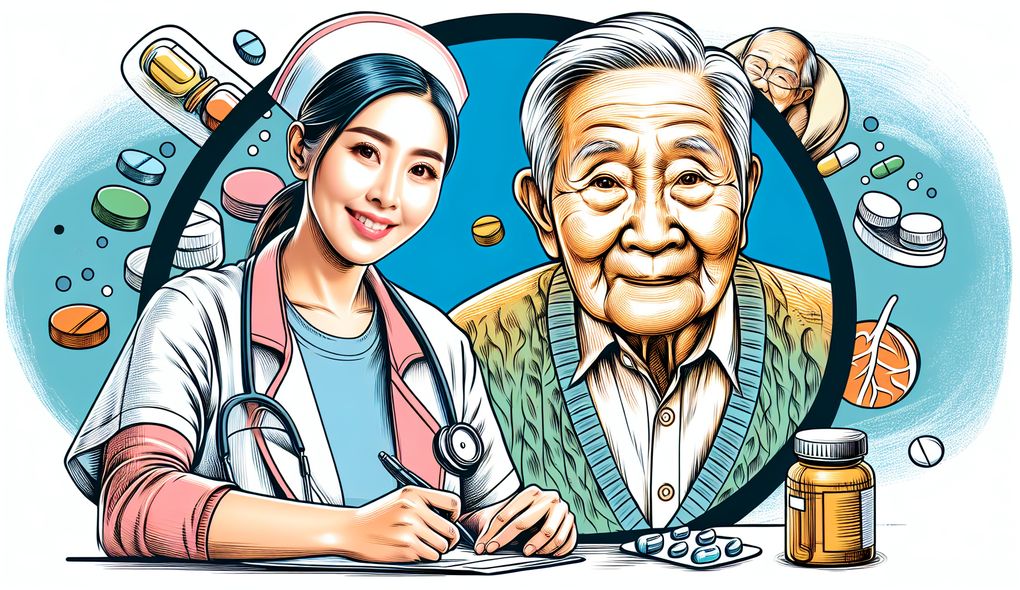How do you approach educating patients and families on health care issues affecting the elderly, such as dementia, arthritis, and mobility issues?
INTERMEDIATE LEVEL

Sample answer to the question:
When educating patients and families on health care issues affecting the elderly, I approach it with a compassionate and patient-centered mindset. I take the time to establish a rapport with the patients and their families, creating a comfortable environment for open communication. I use plain and simple language to explain complex medical terms, ensuring that they understand the information. Visual aids, such as diagrams or brochures, can also be helpful in enhancing their understanding. I encourage questions and address any concerns they may have, providing reassurance and guidance. Additionally, I believe in empowering patients and families by providing them with resources, such as support groups or educational materials, to further their knowledge and understanding. Overall, my goal is to ensure that patients and families feel supported, informed, and confident in managing the health care issues affecting the elderly.
Here is a more solid answer:
When it comes to educating patients and families on health care issues affecting the elderly, I have found that a personalized and holistic approach is most effective. I start by actively listening to their concerns and tailoring my explanations to their specific needs and comprehension level. For example, when explaining dementia, I may use metaphors or analogies to help them grasp the concept. I also draw on my clinical skills and knowledge to present evidence-based information and answer any questions they may have. In addition to verbal explanations, I utilize visual aids such as models, charts, or videos to enhance their understanding. To ensure continued learning, I provide written materials and direct them to reputable online resources. Furthermore, I collaborate with other healthcare professionals, such as social workers or occupational therapists, to offer a comprehensive approach to care. By working as a team, we can address the unique challenges posed by conditions like arthritis or mobility issues. Overall, my approach is centered on compassion, empathy, and empowering patients and families to actively participate in their own healthcare journey.
Why is this a more solid answer?
The solid answer provides more specific details about the candidate's approach to educating patients and families on health care issues affecting the elderly. It includes examples of using metaphors or analogies, visual aids, and written materials to enhance understanding. It also highlights collaboration with other healthcare professionals. The answer addresses the evaluation areas by emphasizing communication and interpersonal skills, compassion and patience, clinical skills and knowledge, patient education, and collaboration. However, it could be further improved by providing more specific examples of past experiences and demonstrating familiarity with electronic health record (EHR) systems and telehealth technologies.
An example of a exceptional answer:
In my experience as a Geriatric Nurse Practitioner, I have developed a comprehensive approach to educating patients and families on health care issues affecting the elderly. Firstly, I prioritize building a trusting relationship with them by actively listening and addressing their concerns. For instance, when educating them about dementia, I often draw on my experience working with Alzheimer's support groups and share practical tips for improving daily routines and reducing anxiety. Moreover, I have created educational materials specifically crafted for older adults, such as easy-to-read pamphlets or interactive online modules. To ensure cultural sensitivity, I collaborate with interpreters or utilize translated resources when necessary. Additionally, I stay updated on the latest research and advancements in geriatric care through professional development activities. This allows me to provide evidence-based information and advise patients and families on emerging treatment options and clinical trials. Lastly, I harness technology by utilizing electronic health record (EHR) systems and telehealth technologies to provide virtual education sessions and remote monitoring. By taking this exceptional approach, I aim to empower patients and families with the knowledge and tools necessary to navigate their healthcare journey with confidence and understanding.
Why is this an exceptional answer?
The exceptional answer goes into even greater detail about the candidate's approach to educating patients and families on health care issues affecting the elderly. It includes specific examples of working with Alzheimer's support groups, creating tailored educational materials, and utilizing technology. The answer also highlights cultural sensitivity and staying updated on the latest research. It covers all the evaluation areas in depth, demonstrating strong communication and interpersonal skills, compassion and patience, clinical skills and knowledge, patient education, and collaboration. It showcases the candidate's expertise and dedication to providing comprehensive and personalized care.
How to prepare for this question:
- Familiarize yourself with common health care issues affecting the elderly, such as dementia, arthritis, and mobility issues. Stay updated on the latest research and treatment options.
- Practice active listening and communication skills, as they are crucial for building rapport with patients and families. Consider role-playing scenarios to improve your approach.
- Explore different methods of patient education, such as visual aids, written materials, or interactive online modules. Familiarize yourself with resources available to support patient education.
- Highlight any past experiences or collaborations with other healthcare professionals when educating patients and families. Discuss how these collaborations enhanced patient outcomes.
- Demonstrate your cultural sensitivity and adaptability by sharing examples of providing education to diverse geriatric patient populations. Consider scenarios where language barriers were overcome with the help of interpreters or translated resources.
- Be prepared to discuss your experience with electronic health record (EHR) systems and telehealth technologies. Highlight how you have utilized these tools to enhance patient education and remote monitoring.
What are interviewers evaluating with this question?
- Communication and Interpersonal Skills
- Compassion and Patience
- Clinical Skills and Knowledge
- Patient Education
- Collaboration

